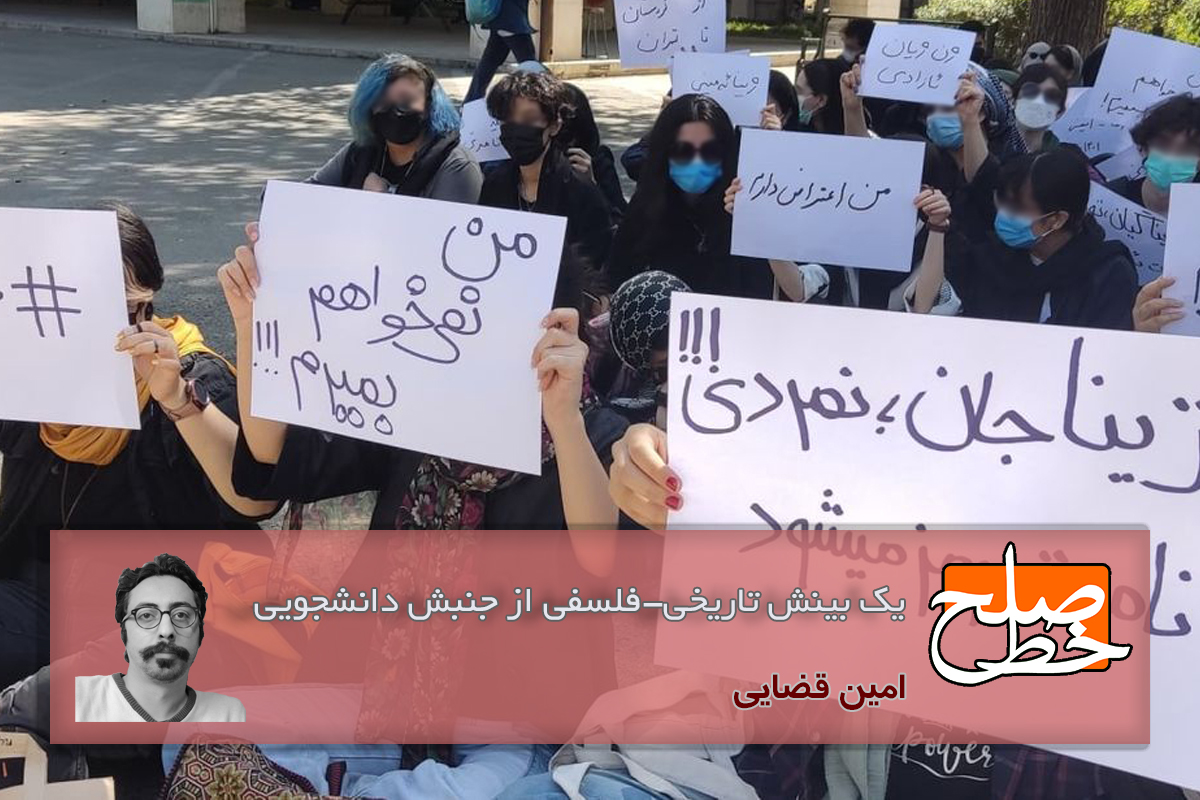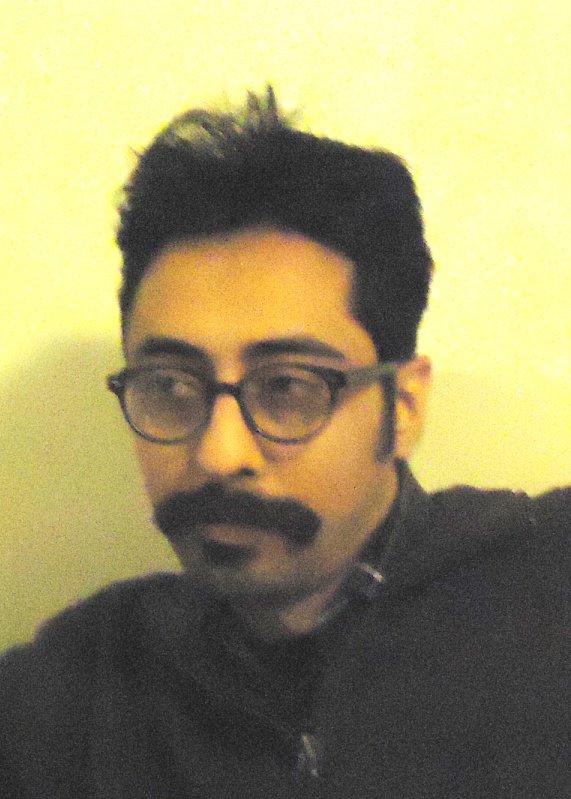
A Historical-Philosophical Perspective on the Student Movement / Amin Ghazaei
Since the beginning of nationwide protests and the uprising of the people, universities in the country have been witnessing widespread protests almost every day in the form of gatherings and sit-ins. According to statistics collected by Hrana, until the writing of this article, there have been hundreds of protest gatherings in one hundred and forty-four universities in the country. At least six hundred and fifty-two students have been arrested and thousands of students have been banned from entering or faced other disciplinary measures.
Students are protesting not for their own desires and class demands, but for a specific political goal: overthrowing the tyrannical government and reclaiming the right to rule by the people. Students have turned their daily protests into a driving force for the people’s nightly demonstrations on the streets. The unprecedented extent of the protests has brought together students from different universities, coordinating and acting in solidarity with each other.
Furthermore, these protests are neither a reaction nor a commemoration; in other words, they are not a result of a temporary anger towards the actions of the government, nor a symbolic or celebratory event (such as Student Day). Despite all the government’s actions such as widespread arrests, the siege of universities by police and security forces, attacks on dormitories, and the securitization of university spaces, these protests have not subsided and continue with an unshakable determination. None of these characteristics were evident in previous student protests and demonstrations. The reason for these qualitative changes should not be sought in the internal dynamics of the student movement. All of this revolutionary determination of the students is the result of a historical awareness of a simple legal fact: that pursuing all human rights, from the right to life, freedom of expression, the right to dress and choose a lifestyle, to labor and economic rights, all of it is in opposition to the usurpation of power by a tyrann
Therefore, it is wrong to attribute this revolutionary movement to the actions of the government or social events in recent years. This collective awareness of Iranians about the necessity of reclaiming the right to sovereignty through a historical path has been achieved over time and at a great cost. However, analytically, anyone could have concluded from the very beginning of the formation of the despotic system of the Islamic Republic that the ruling regime has imposed Sharia and Islamic jurisprudence over all individual and citizenship rights. In other words, from the very beginning, the people were reduced from citizens to subjects; it was clear from the very beginning that without reclaiming the right to sovereignty, it would not be possible to achieve individual and citizenship rights through revolutionary action against the government.
According to Hegel, “The owl only takes flight at sunset”; meaning that wisdom and knowledge only come when the path of historical events has reached maturity. Unfortunately, understanding a simple concept of society requires years of time and experience of painful consequences of mistakes, but fortunately, this historical knowledge, although expensive and hard to obtain, is strong and enduring.
They say that until one seeks knowledge and truth, lies and ignorance will fly everywhere in the world. However, knowledge and awareness have one positive aspect: although knowledge is difficult and expensive to obtain, it is a one-way path. When society gains revolutionary knowledge, it will never lose it and as a result, revolutionary will and anger will never be silenced.
The recent revolutionary movement of students can only be explained by this collective awareness to reclaim the right to sovereignty (i.e. revolutionary action and overthrow of the tyrannical regime). For students, it is not just about union demands, but even the university and being a student are no longer relevant. The university is only a place that brings them together to serve as a stronghold for their fight. Since this is a historical awareness, it will not be affected by temporary and passing events and will not easily fade away. The extraordinary coordination of students in protests is a result of this collective awareness for organization and joint decision-making.
Understanding the student movement as an engine and catalyst for the people’s revolution requires a historical-philosophical insight; something beyond the capabilities of journalism and political discourse, which tend to view events as fleeting and temporary. This delayed and costly historical awareness regards the necessity of revolution as a part and whole, in coordination with each other. This dialectical coordination of part and whole is different from the engineered and institutionalized coordination between them. For the coordination of student and people’s protests, there is no need for party organization. This is why some are surprised at how a revolutionary movement can progress without centralized leadership.
This statement of ours does not mean idealizing the student movement or relying on poetic and general expressions. Our reference is to real qualitative changes: students are transformed from future bureaucratic-technocratic elements of the government into leading components of a national revolutionary movement. In other words, they are no longer functional parts and at the same time, they are not alien to a government in terms of ideology, but rather through revolutionary action, they are an inseparable part of a national-revolutionary movement. Partial, temporary, functional and cost-benefit features give way to general, historical and dialectical features. If the relationship between the student and the government is a functional one, the relationship between the student and the people as a whole is a dialectical one, and the whole is reflected in each part.
The discourse of human rights and human rights defenders will not be able to defend the rights of a nation in a revolutionary situation without this philosophical-historical insight. Just as students do not protest for their individual and class rights as students, human rights defenders cannot defend the rights of students solely by peaceful protest; on the contrary, they must defend the students’ right to reclaim their sovereignty over their country. Rights are intertwined; they cannot be divided into separate parts. A human rights defender cannot defend the rights of a revolutionary people without speaking about their right to reclaim their sovereignty. In other words, one cannot defend an individual’s right to protest without also defending a nation’s right to revolution and overthrow tyrants. The first and most fundamental right of a prisoner is their right to be released from their chains, not their right to complain. The act of reclaiming sovereignty is a historical and national action, not a temporary or partial one. The legal legitimacy of the people of Iran’s struggle must only be proven
 Created By: Amin Ghazaie
Created By: Amin GhazaieTags
0 Peace Treaty 1400 Amin Ghazaei Human rights Mahsa Amini Monthly Peace Line Magazine Nationwide protests peace line Woman, freedom of life ماهنامه خط صلح